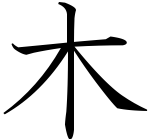Types
In Ki, a type is a union of representation and behavior. In plain terms,
typically a type includes a struct and functions that deal with it,
although types can be based on any other Ki data type (u8, dynarray,
etc.).
A type's representation must either be an scalar, a
sequence, a struct, or a
constant.
Conceptually, a type in Ki is very similar to a class in object-oriented
languages. The main difference is that Ki does not provide inheritance.
Instead, programmers can add functionality to types using
components.
An Example
struct Position {
var x: int
var y: int
var z: int
}
struct Direction {
var x: int
var y: int
var z: int
}
struct Vector {
var direction: Direction
var magnitude: int
}
struct Actor {
var speed: u8
var health: u8
var strength: u8
var position: Position
var direction: Vector
}
struct Fireball {
var strength: uint
var position: Position
var direction: Vector
}
component FireballShooter {
:dependencies {
var strength: uint
var speed: uint
var position: Position
var direction: Direction
}
fn shoot_fireball(): (Fireball) {
return(Fireball(
strength: self.strength * 2
position: Position(
self.position.x
self.position.y
self.position.z
)
direction: Vector(
self.direction.x
self.direction.y
self.direction.z
self.speed * 2
)
))
}
}
component Threatener {
fn threaten() {
echo("Grrrrr!")
}
}
component ThreateningFireballShooter(FireballShooter, Threatener) {}
type Imp (Actor) {
:defaults {
speed: 50
health: 30
strength: 10
}
:components {
ThreateningFireballShooter
}
fn threaten() {
echo("I'm an imp!!")
}
}
type Baron (Actor) {
:defaults {
speed: 50
health: 300
strength: 100
}
:components {
ThreateningFireballShooter
}
fn threaten() {
echo("I'm a baron!!")
}
fn shoot_fireball() {
return(Fireball(
strength: self.strength
position: Position(
self.position.x
self.position.y
self.position.z
)
direction: Vector(
self.direction.x
self.direction.y
self.direction.z
self.speed * 3
)
))
}
}
fn shoot_em_up(shooter: FireballShooter) {
shooter.shoot_fireball()
}
fn main() {
var imp: Imp()
var baron: Baron()
shoot_em_up(imp)
shoot_em_up(baron)
}
